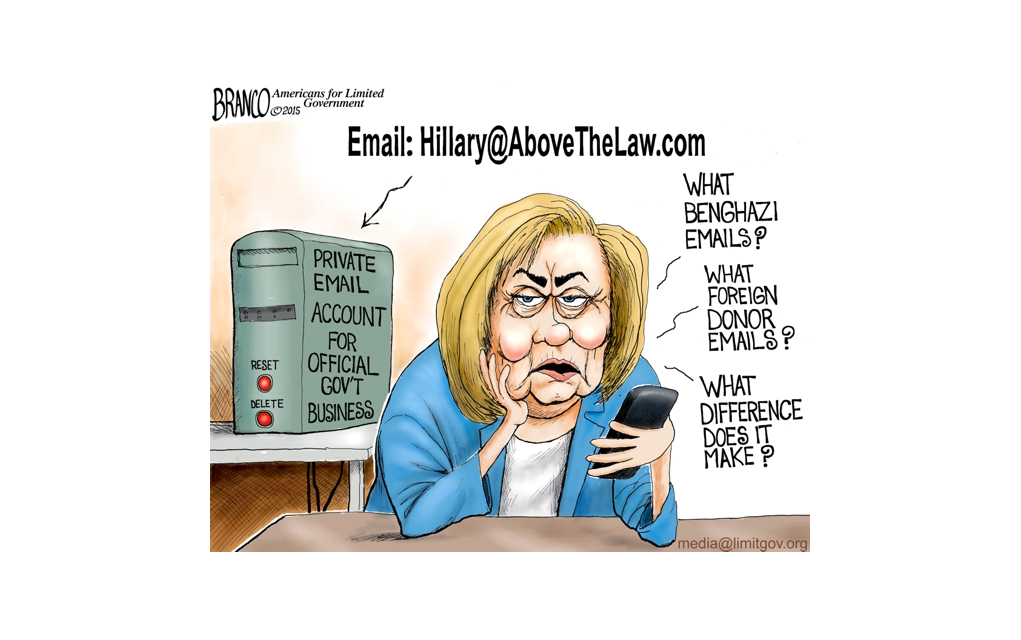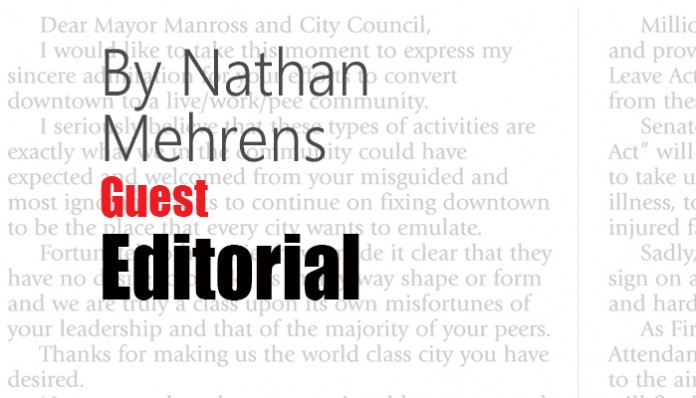 When FBI director James Comey announced that Hillary Clinton’s actions regarding her official email were not worthy of prosecution, his decision had ramifications far beyond the national security context and how officials handle classified material. Essentially he has signed off on the practice of high-level executive branch officials using private email and other records systems in an effort to keep the federal records they create out of the public eye and away from requestors who use the federal Freedom of Information Act (FOIA).
When FBI director James Comey announced that Hillary Clinton’s actions regarding her official email were not worthy of prosecution, his decision had ramifications far beyond the national security context and how officials handle classified material. Essentially he has signed off on the practice of high-level executive branch officials using private email and other records systems in an effort to keep the federal records they create out of the public eye and away from requestors who use the federal Freedom of Information Act (FOIA).
This is a long way from the transparency we were promised by President Obama. In his first week in office President Obama instructed federal employees as follows:
“The Government should not keep information confidential merely because public officials might be embarrassed by disclosure, because errors and failures might be revealed, or because of speculative or abstract fears. Nondisclosure should never be based on an effort to protect the personal interests of Government officials at the expense of those they are supposed to serve. In responding to requests under the FOIA, executive branch agencies (agencies) should act promptly and in a spirit of cooperation, recognizing that such agencies are servants of the public.”
A little over two months later Eric Holder, then the U.S. Attorney General (the U.S. Attorney General just so happens to be the FBI Director’s boss) gave further instructions for the federal agencies in how they perform their FOIA obligations. He stated:
“First, an agency should not withhold information simply because it may do so legally. I strongly encourage agencies to make discretionary disclosures of information. An agency should not withhold records merely because it can demonstrate, as a technical matter, the records fall within the scope of a FOIA exemption.”
As the whole Clinton email situation so aptly demonstrates, there is a wide gulf between the words that were proclaimed and what actually occurs in real life. Clinton, having been part of the Washington, D.C. establishment for decades clearly knows how FOIA works. There is ample evidence to allow an inference that her personal server was set up in an effort to keep email, such as those described by the President and the Attorney General, from public records requests under the FOIA.
The FOIA was enacted to enable the public to keep an eye on what federal agency officials are doing in their work for taxpayers. The Act has provisions providing that some information can be kept private, such as information that would be an unwarranted intrusion into the personal privacy of a person, and information that is pre-decisional in nature, designed to protect the deliberative process of an agency and allow robust discussion of ideas within an agency, but generally most agency records are releasable to the public.
Each time a federal employee writes a note, sends an email, drafts a document, etc., they are creating federal records. These federal records are subject to retention standards and the agencies have officials with the responsibility for ensuring that all such records are retained for the appropriate period of time. At least that’s how it is supposed to work.
Given the free pass that Clinton has been handed for her actions on federal records there is little reason to believe that any high-level official in the future will not employ the same tactics. After all, if you have the means to set up your own private server, or can have federal employees set up one for you, in light of these events, why wouldn’t you?
If the only penalty that you might suffer is public scrutiny after the fact, when you finally turn over the records, long after you are gone from office, why wouldn’t you take the ability to operate in secret now as a reasonable trade off?
Also, if you can get away with sending and receiving highly-classified information on your own server, you can certainly get away with sending the mundane email that nonetheless constitute federal records and should be housed in the appropriate federal system.
This is the legacy the present administration has brought us, a promise of transparency that was really just clear as mud.
Nathan Mehrens, President of Americans for Limited Government Foundation, an experienced FOIA practitioner, has filed hundreds of FOIA requests, having filed FOIA requests with every federal executive branch department.





